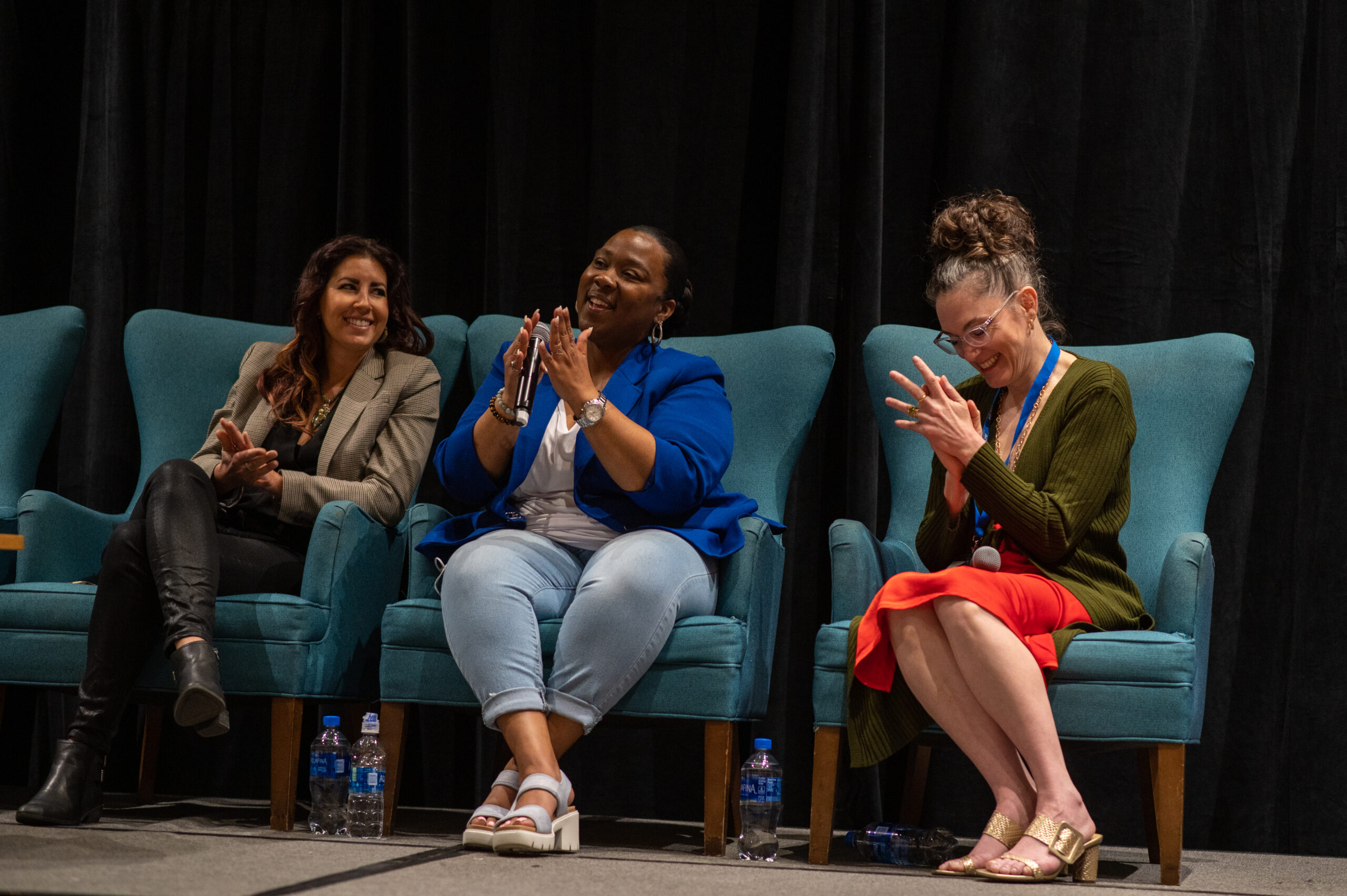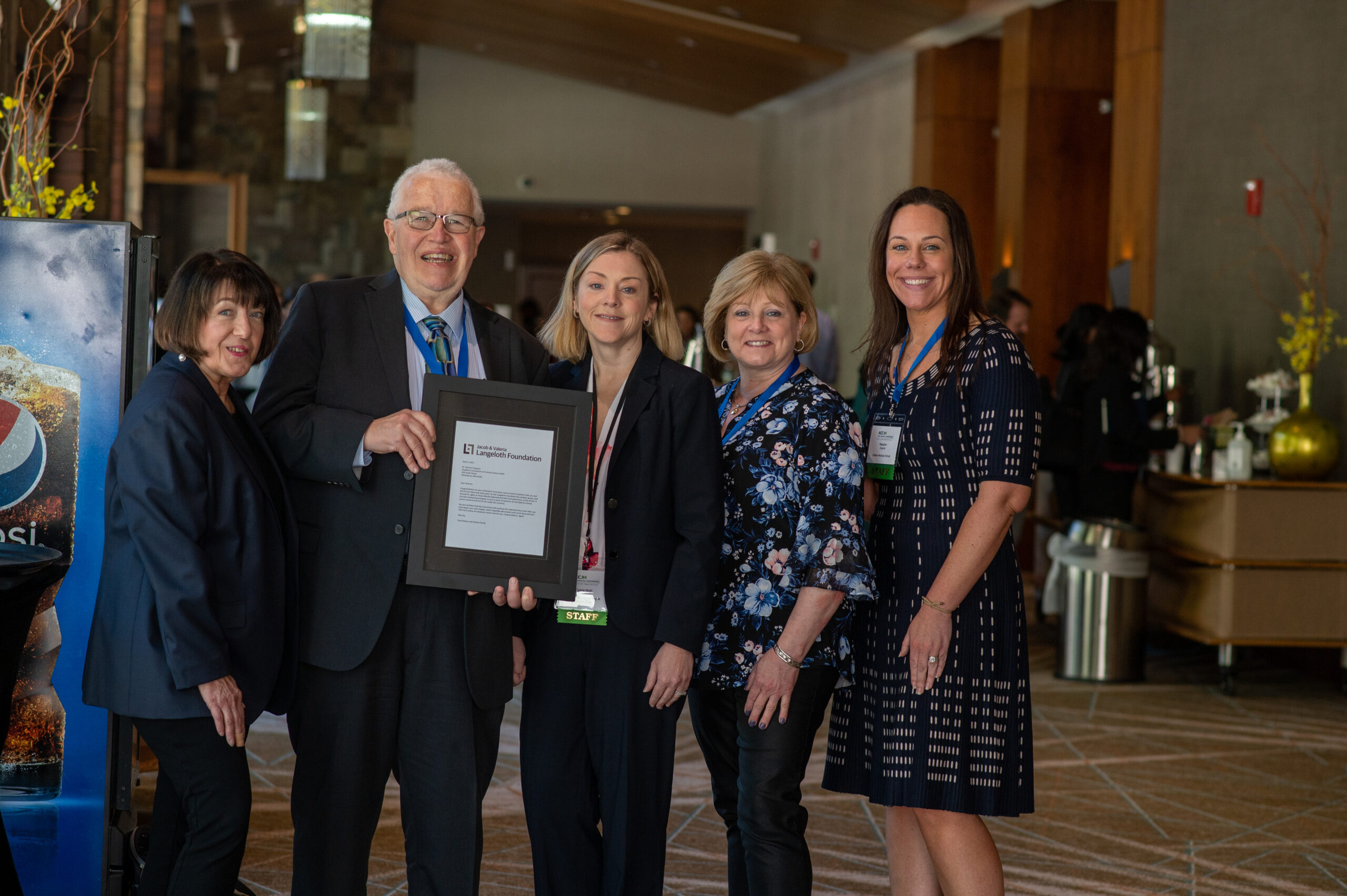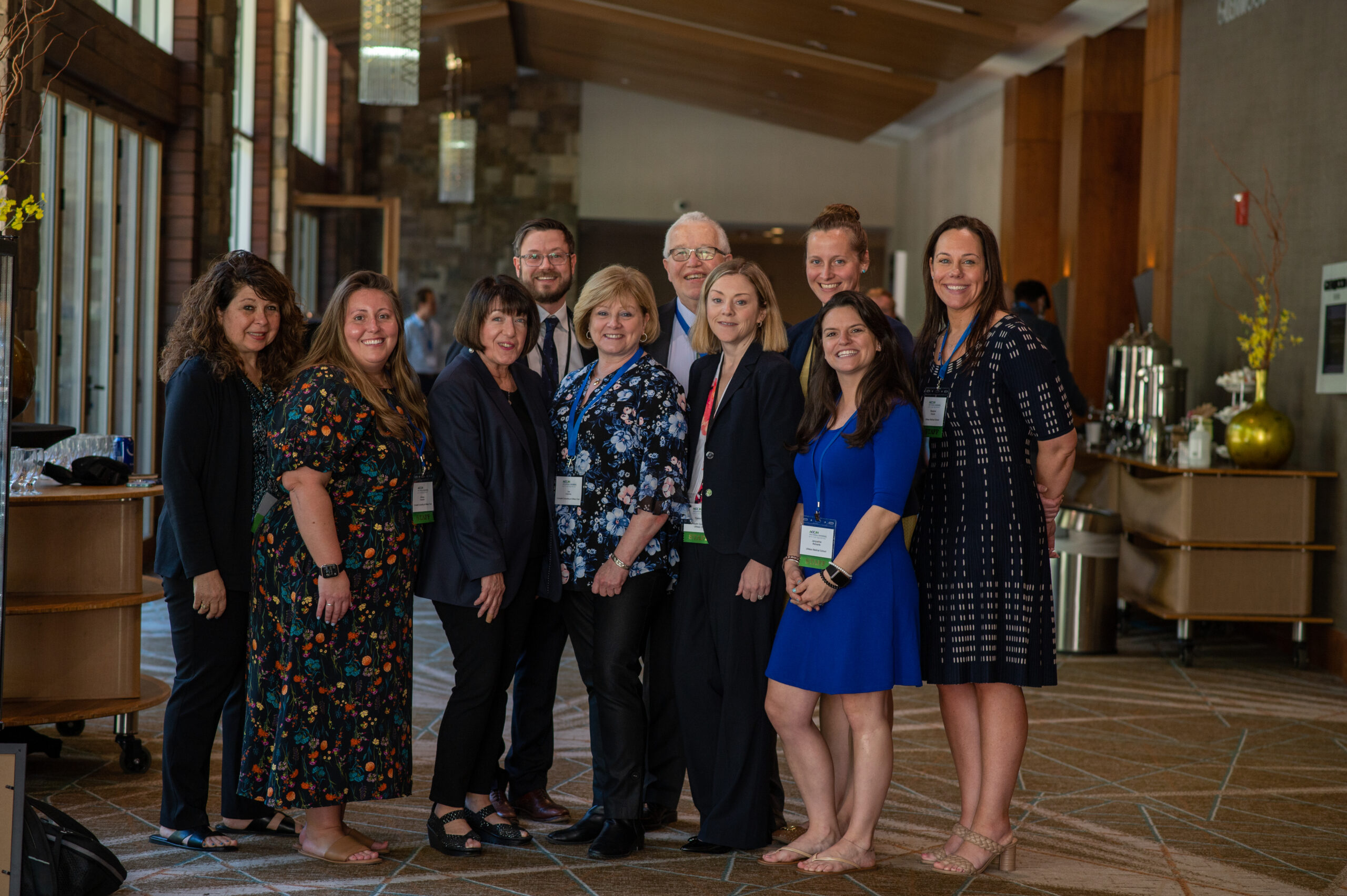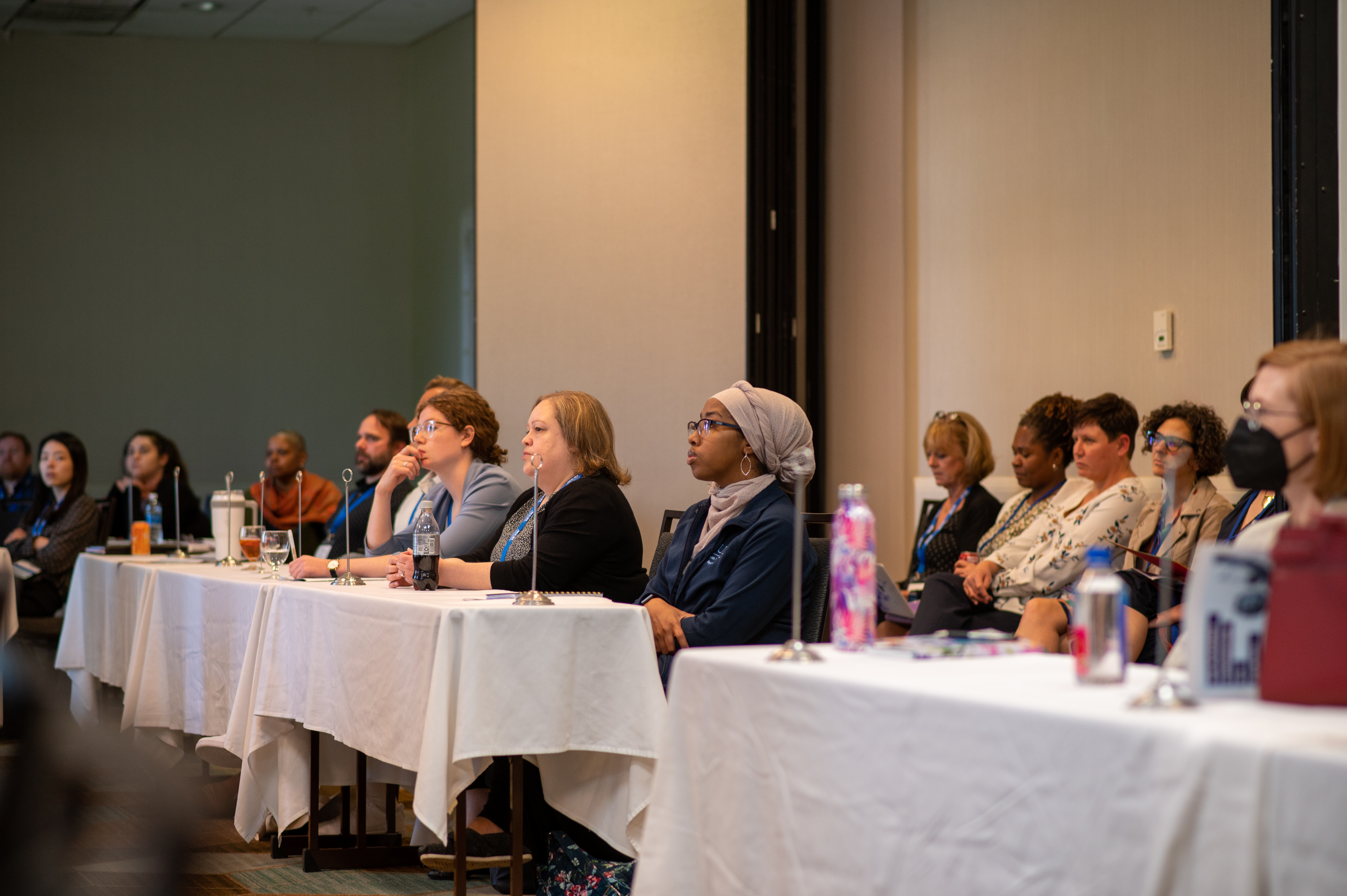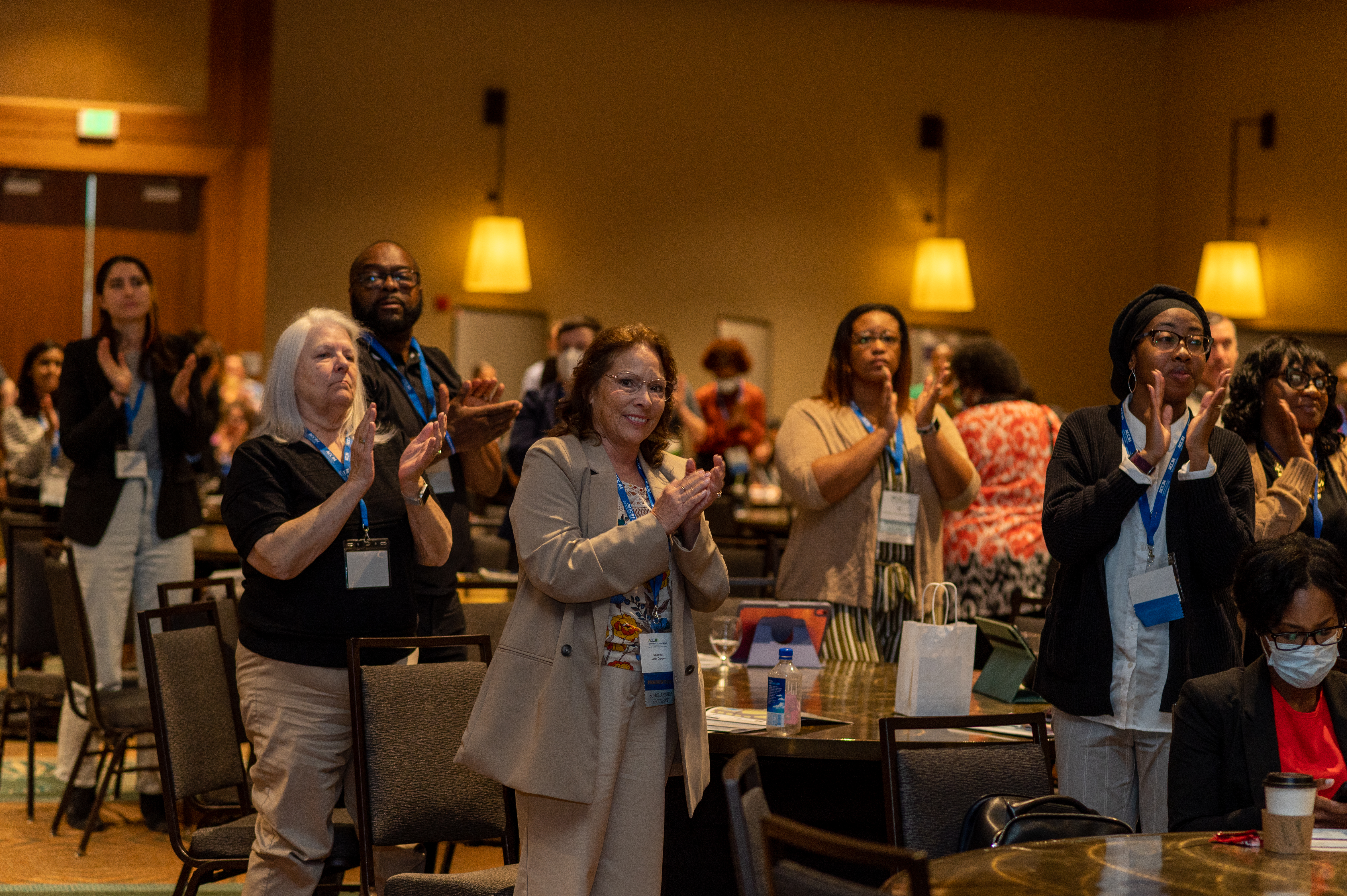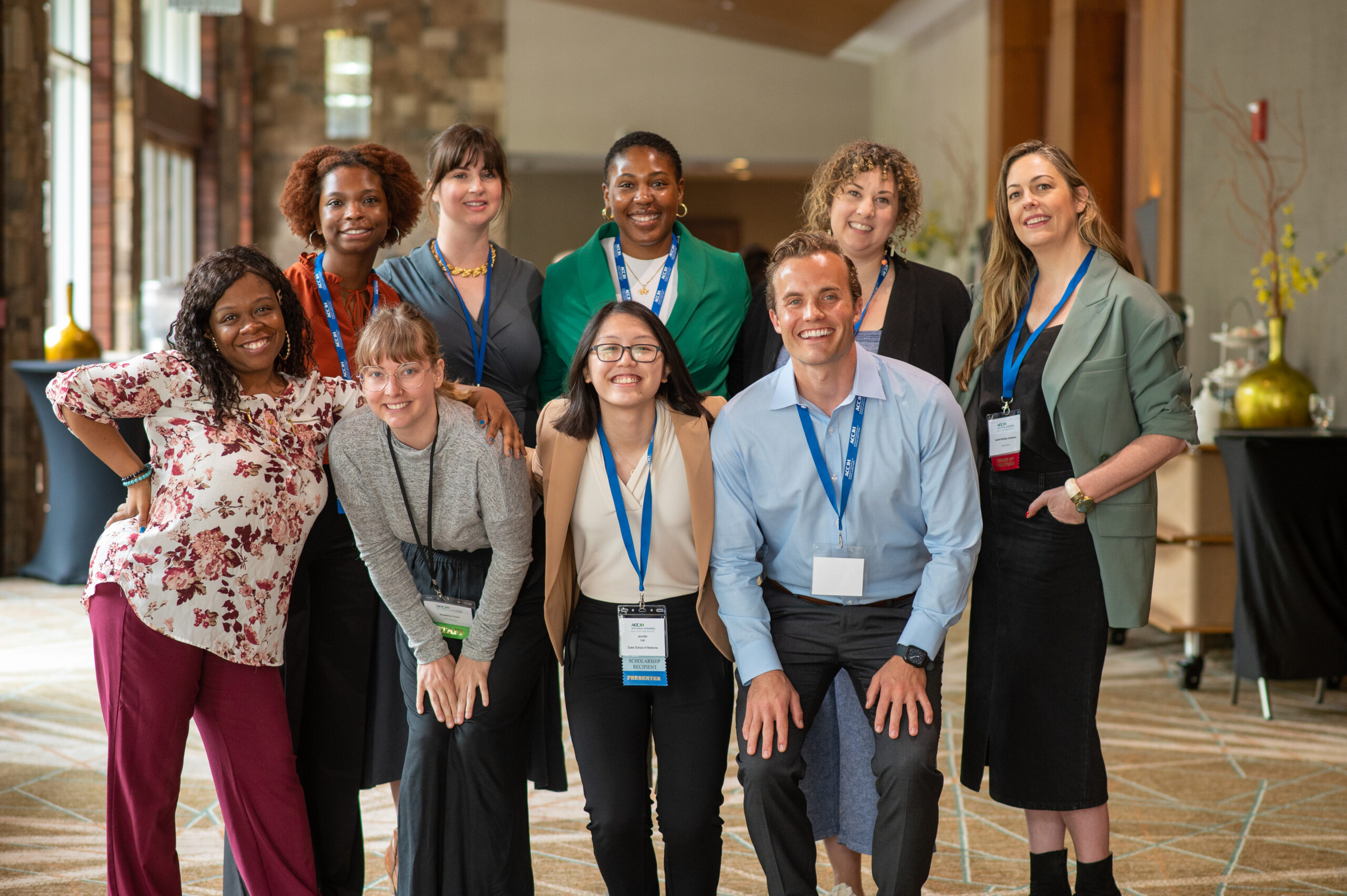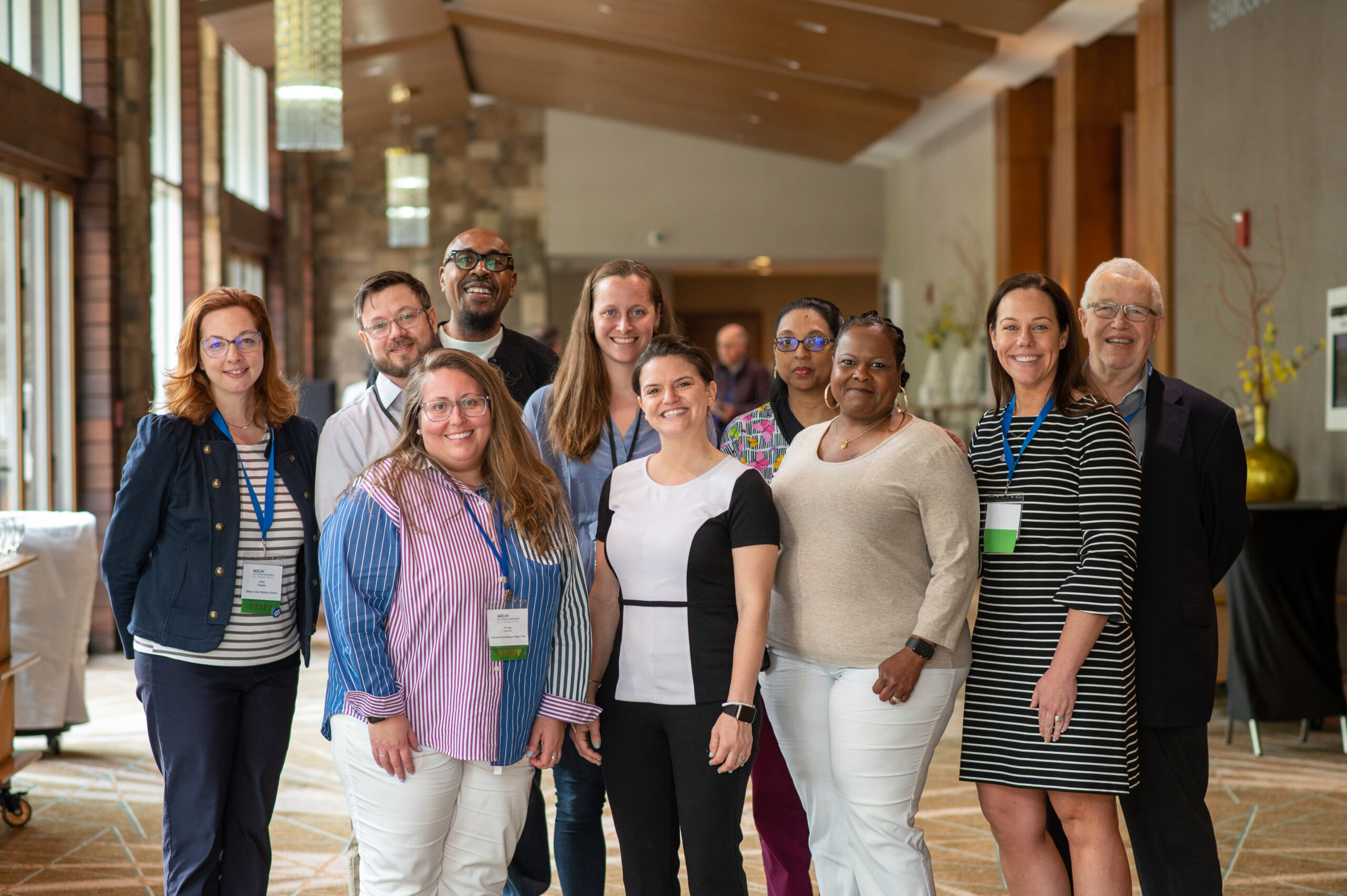| Thursday, April 13, 2023 |
| 7:30-8:30 a.m. | Registration/Breakfast/Roundtable Discussions Glenwood I&2 |
| 8:30-9:00 am | Welcoming Remarks |
| 9:00-10:15 am | Keynote Presentation: Catalyzing Reform Via Film: The Belly of the Beast Glenwood I&2 |
| 10:15-10:30 am | Break |
| 10:30-11:30 am | 60 Minutes: Track One: Women’s Health Salon A-C | 60 Minutes: Track Two: Community Reentry Salon D | 60 Minutes: Track Three: Juvenile Justice Salon E | 60 Minutes: Track Four: Infectious Disease City of Oaks | 60 Minutes: Track Five: Mental Health Salon F-G |
| Pregnancy and Parenting in Prison: Before, During, and “After” the COVID-19 Pandemic Amanda Corbett MPH | An Examination of a Person-Centered Humanistic Approach to Community Reentry Lina Racicot EdD | Early Lessons Learned from a Multisite Randomized Controlled Trial of Evaluating Methods to Improve Linkage to HIV Prevention and Treatment Services for Persons with Opioid and Stimulant Use Involved in the Justice System: Addressing Risk Through Community Treatment for Infectious diseases and Opioid use disorder Now among justice-involved populations (ACTION)Randi Proffitt, PhD, Sandra Springer, MD, Ank Nijhaan, MD, Kevin Knight, PhD | Lessons Learned from the Clinical Dilemmas during a Large Tuberculosis Outbreak in a State Prison System Lara Strick MD, MS | A trauma and PTSD primer for correctional health professionals Melissa Zielinski PhD |
| 11:30am-11:45 pm | Break |
| 11:45-12:45 | 15 Minutes: Track One: Implementation Science Salon A-C Moderator: Sadacharan | 15 Minutes: Track Two: Community Reentry Salon D Moderator: Prost | 15 Minutes: Track Three: SUD Salon E Moderator: Vest | 15 Minutes: Track Four: HIV City of Oaks Moderator: Nijihawan | 15 Minutes: Track Five: Mental Health Salon F-G Moderator: Pruette |
| Enablers and barriers in implementing Promoting Integration of Primary and Behavioral Health Care (PIPBHC) in outpatient treatment programs Minerva Francis EdD | Peer Navigation and Service Utilization Upon Reentry into the Community Among Justice-involved Persons Alysse Schultheis MA | The Bureau of Justice Statistics findings on opioid use disorder response practices and treatment in local jails Richard Kluckow DSW | DEPART-CJI: Directly-Observed-Therapy Enhanced Peer-support to Promote Adherence to Antiretroviral Therapy among Criminal Justice-Involved Individuals Maxwell Ackerman BS | Mental Healthcare Practices from Entry to Release among Southeastern Jails Elena DiRosa MPH |
| The Application of Implementation Science Methods in Correctional Health Intervention Research
Tonya Van Deinse PhD
Melissa Zielinski PhD | | Mortality and acute care utilization following prison release among individuals with substance use disorders
Peter Treitler MSW | Incarceration Linked to Increased Report of HIV Testing in People Who Inject Drugs in Massachusetts
Benjamin Bovell-Ammon MD, MPH | Understanding Justice-Involvement in Individuals Served by Arkansas Crisis Stabilization Units
Marley Fradley BS |
| The Development & Evaluation of a Digital Peer Support Group for Formerly Incarcerated People
Will Boles BS
Thad Tatum BS, AA
Jarrod Wall
Lauren Nguyen | Community Health Worker Adherence to Self-Determination Theory in the Women’s Initiative Supporting Health (WISH) Intervention Study
Anh-Tho Antoinette Nguyen BA | Cascade of Care in the Justice System: Best Practices and Goals for Agencies Providing Care to Patients Concurrently Navigating Substance Use Disorders and Justice Involvement
Kendra Clark PhD | Indications for PrEP in a Justice-Involved Population: Intersection of substance use and sexual risk
Ank Nijhawan MD, MPH | A review of the characteristics of male incarcerated persons transferred from North Carolina jails to Central Prison on safekeeping orders for inpatient psychiatric treatment
Joseph Williams MD |
| Implementation of peer support specialists in Florida family dependency drug courts
Barbara Andraka-Christou JD, PhD | WORTH Transitions: Factors Impacting Participation in an HIV/STI Prevention Intervention for Women Recently Released from Incarceration With the Health Equity Implementation Framework
Karen Johnson PHD | U.S. Jail Administrator and Clinician Perspectives on Medications for Opioid Use Disorder for Pregnant People in Custody
Chanel Lee MSPH | Perceived versus actual risk among PrEP indicated persons on community supervision
Taylor Krajewski MA | A national epidemiologic profile of tailored mental health services for individuals ordered to treatment by a court
O’Dell Johnson PhD |
| 12:45-1:45 pm | Lunch |
| 1:45-2:45 pm | Poster Session Glenwood Salon III&IV |
| 2:45-3:45 pm | 30 Minutes: Track One: Reproductive Health Salon A-C Moderator: Nowotny | 30 Minutes: Track Two: Policy Reform Salon D Moderator: Reagan | 30 Minutes: Track Three: Community Based Strategies Salon E Moderator: Camplain | 30 Minutes: Track Four: Trauma Informed Care City of Oaks Moderator: Morse | 30 Minutes: Track Five: Substance Use Disorder Treatment Salon F-G Moderator: Bunting |
| Abortion Access for Incarcerated People
Martha Paynter RN, PhD | Preparing to Remove the Medicaid Inmate Exclusion: Pre-Release Services in California. Lessons from the Transitions Clinic Network
Shira Shavit MD | Community Based Participatory Research in Action: Bringing the Expertise of Lived Experience with the Legal System into the Research Process
Tess Drazdowski PhD
Michael McCart PhD
Rebecca Fix PhD
Barbara Oudekerk/Maurer PhD | Trauma, consent, and decision-making in women’s prison: can we imagine a different approach to care?
Jennifer James PhD, MSW, MSSP | What does the Department of Justice’s new focus on MOUD access mean for jails, prisons, community members, healthcare providers, and researchers?
David Sinkman JD, MSc |
| Maternal Health and Health Outcomes: New Data Collection Efforts from the Bureau of Justice Statistics
Laura Maruschak MA | “Consent for Incarcerated People is a Fallacy”: Correctional Reproductive Healthcare Under the Shadow of the California Eugenics Program
Leslie Riddle MPH, Aminah Elster, BSLS | Community-driven strategies for implementing suicide prevention education in jails
Melissa Zielinski PhD | Understanding Trauma-Informed Primary Care Focused on Correctional Facilities: A Scoping Review
Eilish Scallan MD | What Research and Policies are Needed to Implement Medicaid Reimbursement of Opioid Use Disorder Treatment in Prisons and Jails?
Alexandra Duncan DrPH MPH |
| 3:45-4:00 pm | Break |
| 4:00-5:00 pm | 15 Minutes: Track One: MOUD Salon A-C Moderator: Wurcel | 15 Minutes: Track Two: Aging Populations Salon D Moderator: Brewer | 15 Minutes: Track Three: SUD Salon E Moderator: Taxman | 15 Minutes: Track Four: Data and Policy City of Oaks Moderator: Brinkley-Rubinsten | 15 Minutes: Track Five: Trauma Informed Care and Mental Health Salon F-H Moderator: Cummings |
| Extended-release injectable buprenorphine initiation in a correctional setting: Community treatment retention outcomes
Justin Berk MD, MPH, MBA | How are Bedrails like Bars? Examining Institutional Relationships underlying Post-Release Care in a Connecticut Nursing Home
Apoorva Rangan A.B. | Exploring Community Supervision Officer’s Perceptions and Responses to Naloxone Possession Among Clients
Linsey Belisle PhD | Justice Involvement and Contact with Community Health Systems: Emergency Department, Inpatient, and Outpatient Encounters 2014-2020
Michele Easter PhD | Coping to Buffer Traumatic Experiences Among People Experiencing Wrongful Conviction and Re-entry
Gayle Cummings PsyDc, MPH Obie Anthony, Exec Director, Exonerated Nation, Martina Peralta DO/MPHc |
| Buprenorphine-Naloxone vs. Extended-Release Naltrexone for Opioid Use Disorder in People with Criminal Justice Involvement: A Secondary Analysis of the X:BOT Randomized Controlled Trial
Dylan Balter BA
Benjamin Howell MD, MPH, MHS | A Rapid Evidence Assessment of Transitions of Older Adults in the Justice System: Directions for the Future
Kristin Merss BSN, RN
Stephen Kwas
Laura Block BS, BSN, RN | Referrals to drug treatment by probation and parole officers: Changes over time and differences by race/ethnicity and drug of choice, 2015-2020, United States
Nickolas Zaller PhD | Prison Hospital Data Transmission to Federal Health Cost and Utilization Project Datasets and Subsequent Availability
Michael Behne BS | Trauma-Based intervention for Adults Released from Jail, Stephen Tripodi PhD
Tanya Renn PhD |
| Medications for Opioid Use Disorder in Jails and Prisons in Massachusetts: Cost-Effectiveness and Impact on Overdose Deaths
Avik Chatterjee MD, MPH | Older Adult Health and Treatment Needs for Veterans and Non-veterans Incarcerated in State Prisons
Lance Washington MA | Exploring the burden of opioid related death among people in provincial correctional facilities in Ontario, Canada
Amanda Butler PhD | Formative Work to Develop a National Prison Health Surveillance System
Jessica Gaber MSW, RSW | “Nothing but a Rope to Hang Yourself:” The Toll of Mass Supervision on Mental Health
Katherine LeMasters MPH |
| Using a Unique Statewide Data Platform to Characterize Receipt of Medications for Opioid Use Disorder Before and After Incarceration in Massachusetts, 2015-2019
Benjamin Bovell-Ammon MD, MPH | Health and Reentry Through Our Lens: Findings from a Participatory Photovoice Study with System-Impacted Older Men
Daina Stanley PhD, MA | Recovery Capital and Community Reentry: Perspectives from Prison-Based Substance Use Disorder Treatment Program Clinicians and Administrators
Evan Batty MA | What Health Status Indicators Should be Included in Health Surveillance for Women who are Incarcerated? A Review and Critical Analysis of Guidance and Published Literature
Jessica Gaber MSW, RSW | Mass Probation: Effects of Probation on Mental Health for Black and White Individuals
Katherine LeMasters MPH |
| 5:00-5:30 pm | Break |
| 5:30-7:00 pm | Reception: Includes Presentation of Warren J. Ferguson Scholarship and certificate presentations to all scholarship awardees Outdoor Courtyard |
